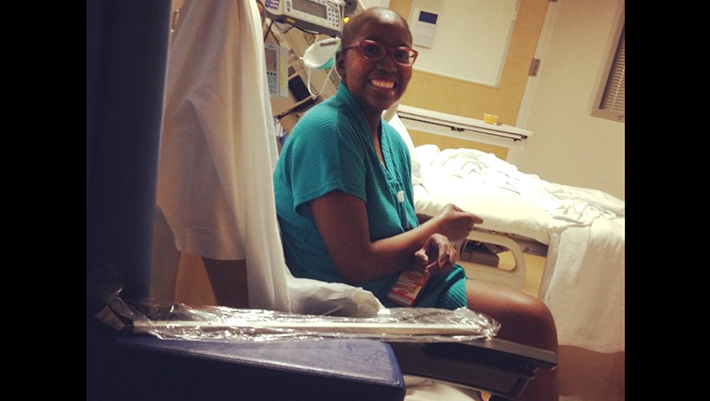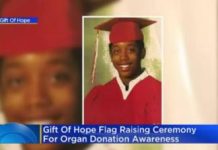
Special to the Trice Edney News Wire from Howard University News Service
(Trice Edney Wire) – Bi’ja Thatch sat nervously beside her mother when her doctor entered through the doors of her hospital room a little over a year ago bearing troubling news. Thatch was diagnosed with a rare, cancer-like disease that causes cells to destroy and damage each other.
Thatch’s only chance of survival was a bone marrow transplant.
Thatch was lucky. It took her a year to find a donor, but she did find one. Every day, however, 20 people in need of transplants die waiting for organs. Ten of them, like Thatch, are African-American. In fact, 35 percent of people on the national waiting list for major organs are African-Americans.
Thatch, 21, successfully underwent the transplant last July and is in recovery.
“I am so grateful for this transplant because I know many people are not as fortunate as me to make it off the waiting list,” Thatch said. “Transplants are extremely helpful to those fighting fatal diseases.”
Despite the African-American community’s high need for major organs, statistics show they are the lowest ethnic group of registered donors. Blacks comprise only 14 percent of organ donors.
Consequently, African-Americans are in desperate need of kidneys for diseases such as hypertension and diabetes, more than any other ethnic group. They also need bone marrow and tissue transplants.
There are numerous accounts of African-Americans, some famous and some just regular citizens, dying for lack of donors.
Grammy Award-winning rapper Nelly’s sister, Jacqueline Donahue, died at age 31 despite her family’s four-year attempt to find a bone marrow to help cure her of leukemia.
Shannon Taverez an 11-year-old actress who played Nala on Broadway in the ‘The Lion King,’ died six months after being diagnosed with leukemia when her mother was unable to find a bone marrow donor.
Dr. Clive Callender, senior transplant surgeon at Howard University Hospital, has seen and heard the stories. In response, Callendar, who performed the first kidney transplants at Howard University and one of the city’s first liver transplants, founded the National Minority Organ Tissue Transplant Education Program, in order to increase the number of blacks who agree to be donors.
Using a $1.2 million study, Callendar discovered there were five reasons African Americans shied away from organ donation lack of knowledge of organ donation, their religious beliefs, their fear of being used as a “guinea pig,” a fear of being prematurely killed for organs and a mistrust of the medical system.
By working to dispell those myths and misconceptions, Callendar’s organization saw the number of African American donors in the District of Columbia increase by 125 percent over the past 20 years.
“Many said that minorities would not donate,” Callendar said, “but we have demonstrated that minorities will become apart of the solution to this problem.”
Though progress has been made, Callender says there is still a great need for more African-American organ donors.
Delise Hampton, 21, made a decision to become an organ donor two years ago when she became aware of the African-American community’s needs.
“When I pass away, my organs will be of no use to me,” Hampton said. “It is very fulfilling to know that I will really save someone’s life”.
The Washington Regional Transplant Community (WRTC), organ procurement organization, is dedicated to making sure this goal is achieved. This organization facilitates relationship between donors, donor families, transplant teams and waiting list patients.
It also provides professional education programs to encourage healthcare professions to get involved in the donation process. They host public education programs designed to promote donor registration and awareness.
“If someone walked up to you and asked if would you like to save a life at no cost to you or your family, most would say, “Yes,” said Lesley Compagnone, a manager and spokesperson for WRTC. “That’s what being an organ donor is. When you pass away, you can save up to eight lives. ”













